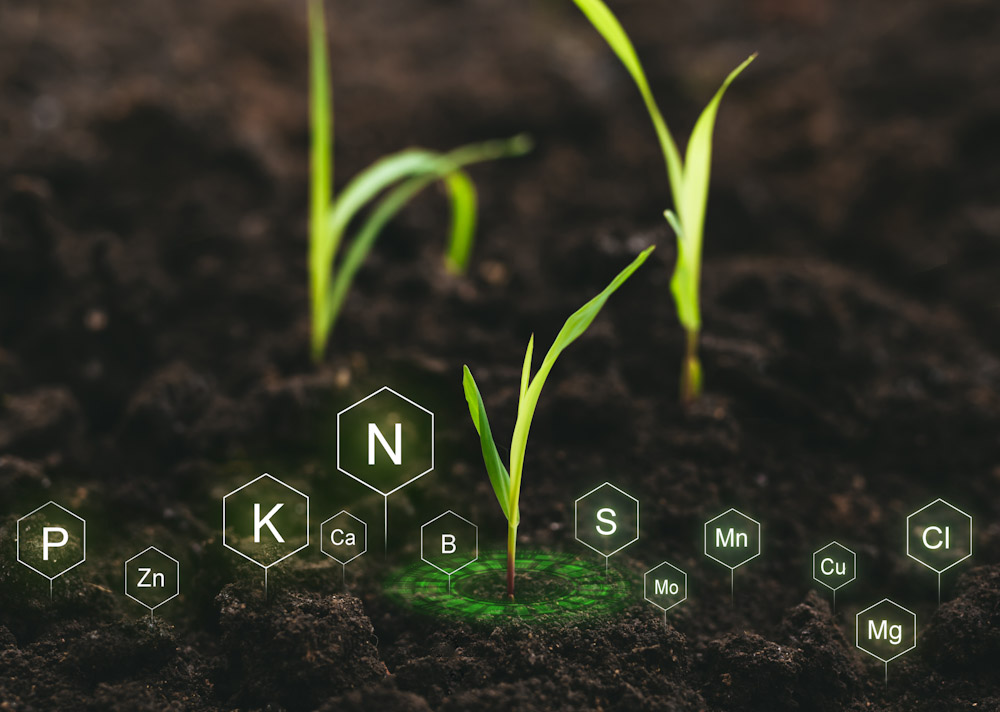When it comes to lawn care in a state like Utah, where all four seasons are present and accounted for, and daily weather conditions are always subject to change, good fertilizer and its consistent application are a homeowner’s best friends. One doesn’t realize until they own a bit of land just how much is required to keep grass, trees, and shrubbery looking their best, or the number of adverse things that can affect them. After all, there are numerous types of diseases to watch out for, like mold, mildew, leaf spots, and rust; damage from drought, burn-in, salt (a particular problem in Utah), and dormancy are all things to mind, as well.
Trees aren’t exempt from these problems either. Leaf spots, anthracnose, and complications from too much heat and not enough water can effectively doom a yard’s greenery. Happily, the right fertilizer (as well as a steady regimen of watering) can kick your lawn care into high gear and save your grass.
Fertilizer Basics
Back in 1984, a Gallup poll found that lawn care﹘particularly gardening﹘was the number one most leisurely pastime for Americans for the second year running. At that time, nearly $13 billion was being made or saved by domestic gardeners growing their own crops, with tomato plants being the most popular to grow. Today, similar polls have shown that the next generation of that domestic gardeners﹘fewer than half, actually﹘ignore the use of fertilizers to grow their crops. This could be for a few reasons; perhaps they weren’t taught, or that during this organic food boom, they are afraid that the fertilizers will hurt the plant. There is likely a contingent of people who are intimidated to use them because they either don’t know how or don’t know what they do.
How They Work
Fertilizers are made up of compounds﹘sometimes wholly organic, sometimes wholly industrial, and sometimes a mixture of both﹘that encourage healthy soil, good plant growth, and pest control by introducing essential elements into the ground. Plants need specific nutrients to ensure a good yield; nutrients like Nitrogen, Potassium, and Phosphorus. Fertilizers are typically cast or sprayed over the soil in order to introduce these nutrients in greater quantities because most gardens don’t have enough of each in good measure.
Each nutrient has a unique and essential function in the process of lawn care, once introduced into the soil. Lawngevity uses fertilizers that promote increases in:
- Nitrogen: This helps the plants increase the speed of their growth by stimulating their tissue. This increases the size of their yield, as new chutes are formed, and from them, new flowers and fruits.
- Potassium: Much like in humans, potassium is a protein builder, which makes the plants grow strong and healthy. The more proteins in the plant, the easier it is to resist disease and the more nutrients enter in by way of photosynthesis.
- Phosphorus: Phosphorus helps plants create a strong root system by developing the enzymes that roots need to develop. Phosphorus also creates chlorophyll, which activates photosynthesis.
There are, of course, other needed nutrients within fertilizer that plants need to grow up strong and beautiful, such as magnesium, calcium, and sulfur. Gardens that habitually use fertilizer have a demonstrably bigger harvest, while fertilizers themselves can protect and enrich the soil.
Types of Fertilizer
There are predominantly three types of fertilizers one can purchase to use in their garden. Each performs similar functions, but the compounds that make them up can differ greatly. These are:
- Organic Fertilizer: This is the most common type of fertilizer, used most often throughout history. Organic fertilizers are usually comprised of manure and compost, and recycles natural elements back into the soil.
- Mineral Fertilizer: While these minerals derive from nature﹘the minerals mentioned above, for example﹘they are treated chemically before being packaged and sold for use.
- Synthetic Fertilizer: These are natural elements created wholly through industrial means. Synthetic fertilizers can often be a great help in the effort to maintain pest control.
While each fertilizer is created to produce a greater harvest in the garden, only the organic variant can be replicated at home without any reliance on outside companies. Additionally, the lack of man-made chemicals has increased the demand for food grown entirely by organic means.
Call the Experts
Lawngevity has based its entire business on the safe and frequent use of fertilizers to keep your yard and garden healthy. Not only do we have service packages that ensure we come back at regular intervals for a reasonable price, but we also have DIY packages if you’d like to take your lawn care into your own hands. Give us a call and let’s get started this summer!


